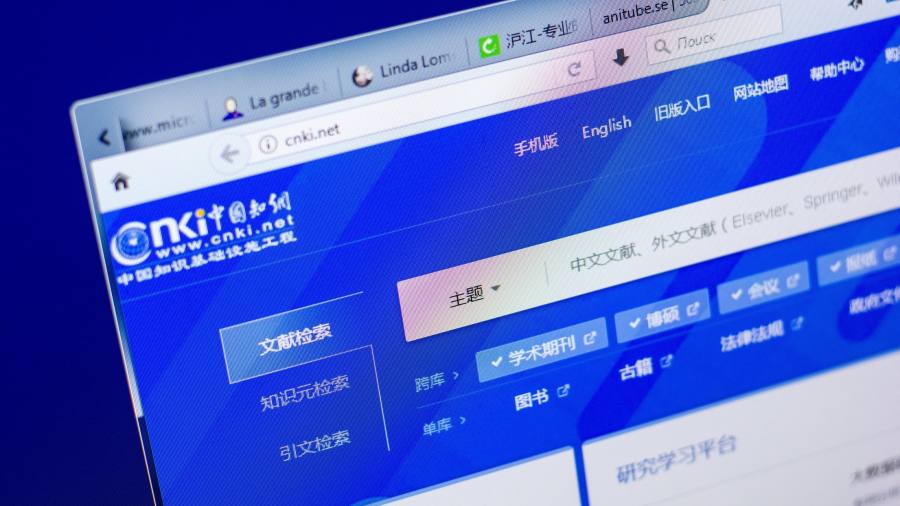
Foreign universities and research institutions say their access to China’s largest academic database is about to be cut, deepening concerns that researching the country will become even tougher as Beijing tightens data security.
Libraries around the world — including those at City University of Hong Kong, the University of California, San Diego and Taiwan’s Institute of Chinese Literature and Philosophy — have been notified that their access to China National Knowledge Infrastructure (CNKI) will be curtailed from April 1 as the company moves to ensure that its “cross-border services are in compliance with the law”.
It is not clear how many institutions have received the March 17 notice but at least a dozen confirmed to Nikkei Asia that they had got the notification and that other institutions had as well.
The number of foreign subscribers is not publicly available. CNKI did not reply to requests for comment about the matter.
The database, which lets academics and students obtain thousands of research papers and documents online, provides access to 95 per cent of China’s academic journals dating back to 1915. It is a critical tool for scholars who are unable to access mainland Chinese libraries in person, and CNKI has a monopoly over the distribution of this information.

This article is from Nikkei Asia, a global publication with a uniquely Asian perspective on politics, the economy, business and international affairs. Our own correspondents and outside commentators from around the world share their views on Asia, while our Asia300 section provides in-depth coverage of 300 of the biggest and fastest-growing listed companies from 11 economies outside Japan.
Subscribe | Group subscriptions
The notice, seen by Nikkei Asia, was sent by the database’s operator, Tongfang Knowledge Network Technology. It said the action was being taken in accordance with the “measures of data cross-border transfer assessment and relevant laws”. The company did not elaborate.
The database was already under investigation by Chinese authorities against a backdrop of heightened scrutiny of tech companies last year. The Cyberspace Administration of China announced in June last year that it was probing the operator to pre-empt risks related to data and national security.
The move came after China revised its cyber security review measures in February last year to “strengthen national data security”. At the time, the internet watchdog said CNKI contained sensitive information about China’s important research projects and technological development.
This month, China announced plans to set up a new national data bureau as part of sweeping reforms that appear designed to consolidate Xi Jinping’s power as he begins a third term as president. It was not clear how much access individual subscribers will lose after the changes come into effect.
However, German database provider CrossAsia informed its customers last week that access would be suspended to four CNKI databases containing information on the national population census, dissertations, statistical yearbooks and conference proceedings — mainly scholarly papers published during workshops and academic conferences.
One Hong Kong university librarian told Nikkei that the institution was told its suspension could last up to six months and there was no guarantee that access would be reinstated.
Tapping China-related information in recent years has been increasingly difficult for those outside the country. Commercial platforms such as corporate search company Tianyancha cannot be accessed from abroad except by using a virtual private network. In Hong Kong, the Universities Service Centre for China Studies, which had one of the most comprehensive archives of newspapers and journals, shut down in 2020.
But even if CNKI does return online, there are concerns that content — especially for sensitive research areas such as science and technology — will be censored.
“Over the past few years, it’s been getting more difficult to get reliable data on China. This CNKI access withdrawal is just the latest blow,” said Mark Witzke, a senior analyst focusing on China at research company Rhodium Group. “If it’s permanent, that means academics, policymakers and businesspeople lose yet another reliable source of info on China. Then decisions are increasingly driven instead by the rumours, baseless conjecture and motivated reasoning that fill the empty gaps.”
Additional reporting by Frances Cheung
A version of this article was first published by Nikkei Asia on March 23 2023. ©2023 Nikkei Inc. All rights reserved.